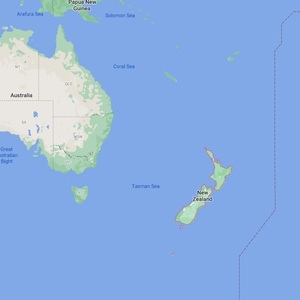New Zealand to implement sustainable biofuels mandate

December 15, 2021
BY Erin Krueger
The government of New Zealand on Dec. 15 announced plans to implement a sustainable biofuels mandate based on greenhouse gas (GHG) reductions beginning at a 1.2 percent GHG reduction in 2023 that could ramp up to 9 percent in 2035.
The mandate requires obligated fuel suppliers to reduce the total GHG emissions of the fuels they set by a set percentage each year through the supply of biofuels. The mandate would apply to all liquid fossil fuel for transportation produced in New Zealand or imported into New Zealand. Under the program, fuel suppliers would have the flexibility to deploy any type of biofuels in any location in the country as long as the biofuels meet required sustainability criteria.
Advertisement
Advertisement
As part of the program, fuel suppliers would be required to prepare annual reports to demonstrate compliance with the mandate. Fuel suppliers would have some flexibility in meeting the mandates, including the ability to trade emissions reductions with each other.
The mandate does not currently include aviation fuels. “We’re committing to develop a separate mandate for aviation fuel during 2022 given the unique challenges the sector faces,” said Transport Minister Michael Wood. “The Ministry of Business, Innovation and Employment is working with Air New Zealand on a feasibility study on the potential for domestic production of sustainable aviation fuel and this will feed into that work.”
The government collected public comments on a proposed mandate in mid-2021.
Advertisement
Advertisement
Related Stories
The U.S. EPA on July 8 hosted virtual public hearing to gather input on the agency’s recently released proposed rule to set 2026 and 2027 RFS RVOs. Members of the biofuel industry were among those to offer testimony during the event.
The USDA’s Risk Management Agency is implementing multiple changes to the Camelina pilot insurance program for the 2026 and succeeding crop years. The changes will expand coverage options and provide greater flexibility for producers.
President Trump on July 4 signed the “One Big Beautiful Bill Act.” The legislation extends and updates the 45Z credit and revives a tax credit benefiting small biodiesel producers but repeals several other bioenergy-related tax incentives.
CARB on June 27 announced amendments to the state’s LCFS regulations will take effect beginning on July 1. The amended regulations were approved by the agency in November 2024, but implementation was delayed due to regulatory clarity issues.
SAF Magazine and the Commercial Aviation Alternative Fuels Initiative announced the preliminary agenda for the North American SAF Conference and Expo, being held Sept. 22-24 at the Minneapolis Convention Center in Minneapolis, Minnesota.
Upcoming Events










